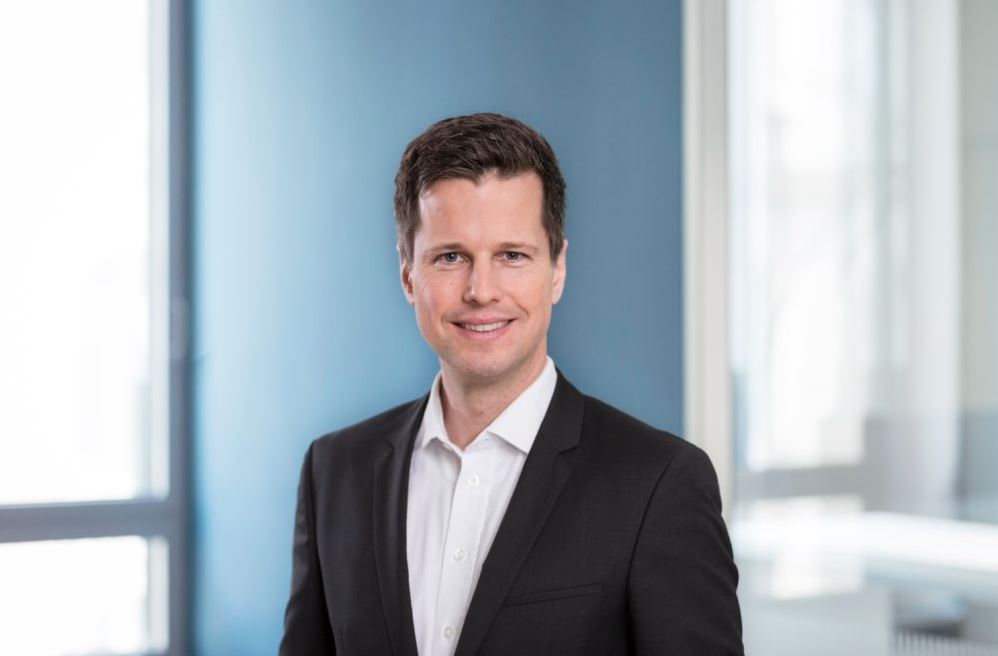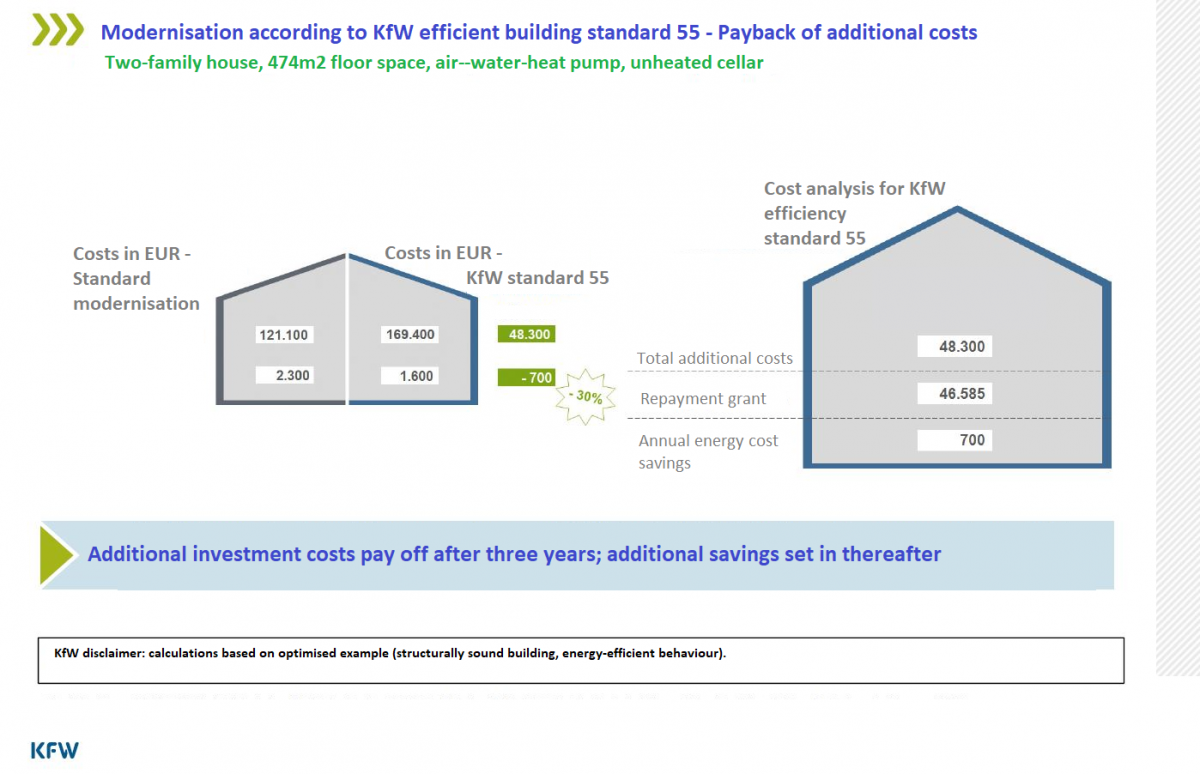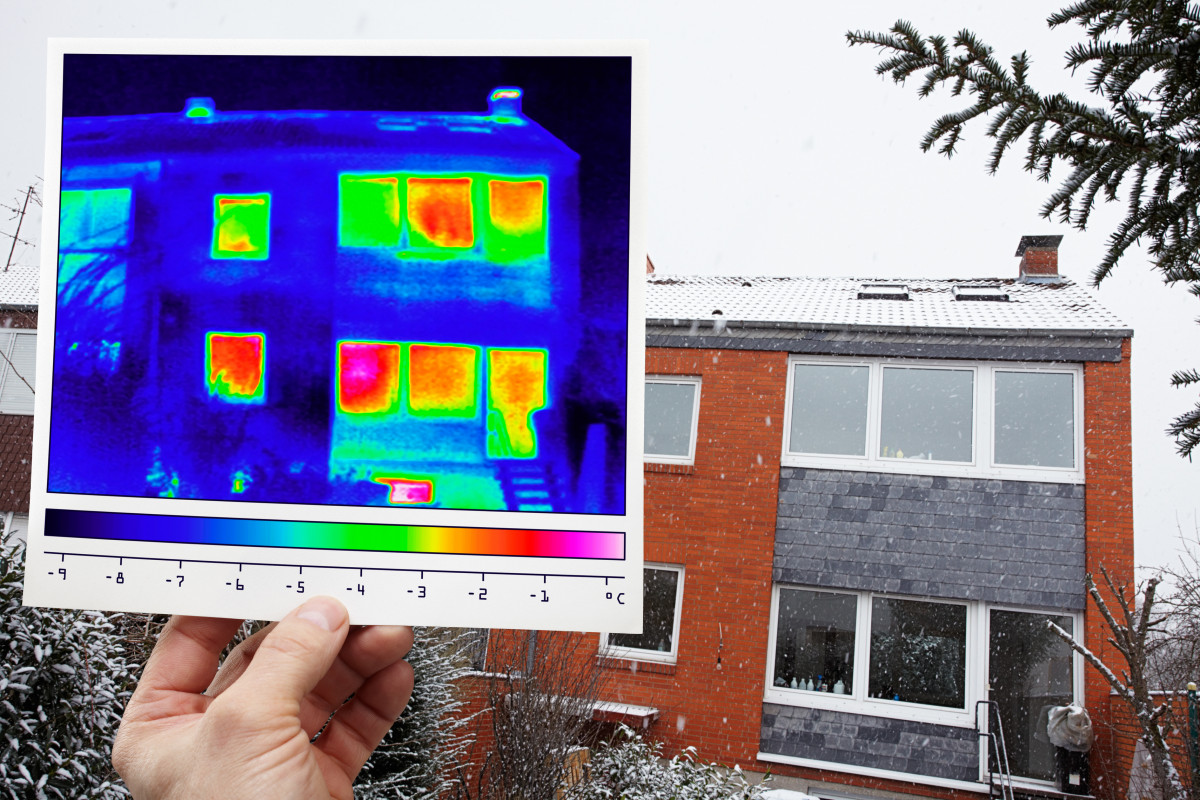'Companies would not think of energy efficiency if it wasn't profitable' - KfW development bank

What sets KfW apart from other banks in Germany in terms of climate and energy finance?
Philipp Tilleßen: The main difference between KfW and the commercial banks in Germany is that our primary aim is to promote the economy and not to maximize profit. Of course, we need to make sure to have solid financial results, but our ultimate goal is to support Germany's economy and society. Moreover, we don't manage any deposits and do not have branch offices. KfW is owned by the Federal Government and by the federal states, who commission it to carry out promotional activities in different areas - and climate action is one of them. KfW was established by law in 1948, as a public-law institution. The “Law Concerning KfW” defines its scope of business and purpose.
Our success is measured by the effectiveness of our support. Germany's triple A-rating is one of our assets thanks to which we benefit from very favourable funding conditions in the international capital markets that we can pass on to our customers. Other support measures include interest subsidies or investment grants, for example for the energy-efficient refurbishment of buildings.
Does a support model based on cheaper credit still work in times of chronically low interest rates?
Yes, it does. We can, for instance, offer repayment grants where part of the debt is cancelled once evidence has been submitted by an independent expert that the promotional objective has been met. In this case you effectively end up with negative interest rates, meaning that you receive money for borrowing. Even under last years' low interest rates that's something you cannot find anywhere else in Germany.
In Germany's climate package, the government says it intends to turn KfW into a "transformative" bank. Can you explain what is meant by that and how it differs from what it has been doing so far?
It means KfW's leading role in promoting the transformation to a climate-friendly and sustainable economy and society. Our share of lending for environmental and climate projects currently stands at about 50 percent domestically and about 40 percent for the total promotional business volume. When turning into a “transformative” bank we are bound to further increase our activities in areas that are directly related to climate action in one way or another. Among other activities to stress the sustainability nature of our business, we will be aligning KfW promotional loan or grant commitments with the UN's sustainable development goals (SDG). The idea is to make transparent how individual projects support a particular SDG.

Most of KfW's climate credentials arguably are in the buildings sector, for which it has been financing energy efficiency programmes for over two decades now. What would you say is working well in the sector in terms of emissions reduction and where do you see the greatest hurdles to decarbonisation?
Our financings contribute to the highest energy efficiency levels in Germany. We've established our own KfW Efficiency House standard in 2012 that compares the primary energy demand of a given building to that of a reference building. In the past few years Germany's Energy Saving Ordinance has brought the average efficiency of new buildings close to the levels we've established in our standards, meaning that we've had to tighten the conditions that make customer projects eligible for support.
Our new premium standard, KfW 40plus, applies to new residential buildings with an average primary energy demand of 40 percent of the reference building. These buildings often even have a positive energy balance, thanks to solar panels on the roof, geothermal heating in the basement and other features. The market has quickly adopted these higher standards. If people or housing companies in Germany construct a new building today, they are actively looking to make it energy-efficient. Up to half of all new buildings in our country now comply with the high KfW 55 standard or better. That's a massive improvement compared to only a few years ago.
And what about the refurbishment of the existing building stock?
The refurbishment is still a challenge. We need to modernise about two percent of all existing buildings per year to stay on track for the Paris Agreement's goals. We're currently seeing a rate of about one percent per year. Modernising a house is a huge task that requires taking many decisions and investing a lot of capital. Many home owners shy away from it or don’t even have refurbishment in their mind at all. The challenge is to find better incentives and communication channels that encourage modernisation.
Tax allowances for building modernisation have been debated for a long time in Germany and now finally are part of the Climate Action Programme 2030. Do you think this could induce real change in the sector and prompt house owners to invest in energy efficiency?
Luring people through reduced taxes definitely has a good chance to get things moving, not least thanks to a widespread mentality in Germany to minimise your tax burden by all available legal means. However, two things are important to make the tax allowance approach a success. First, we need to make sure that we don't let the complexity of processes sprawl further. If you have in parallel a tax-based model, a grant model and a loan model, this will not reduce the number of decisions people have to take when thinking about modernisation. Secondly, there have to be uniform standards as to what constitutes energy efficiency measures, especially if different support models exist.
Apart from bureaucratic hurdles, are there additional expenses that prevent further efficiency investments?
You will have additional expenses at first but of course the idea is that efficiency investments pay off financially in the long run. Whatever is being invested will be overcompensated thanks to energy savings and thanks to promotional loans and grants after a given period of time. Of course, there are also people who invest in energy efficiency out of fundamental conviction but our goal is to develop financial incentives so that more people take part in the energy transition.
A good example are the housing associations using our promotional products and services. These are commercial companies whose aim is to maximise profit. They would not spend a thought on energy efficiency if it wasn't profitable.
KfW finances the modernisation of heating systems. A recent study by energy industry association BDEW has shown that most people still replace old heating with gas-based systems. What can be done to facilitate a switch to fossil-free heating?
Fossil-free heating is actually the main focus of our promotional activities. That is why we give higher grants for renewables-based systems. However, so far the government still wants to support fossil fuel-based systems provided they achieve a substantial improvement in terms of emissions reduction, for example by replacing an old oil-fired heating system with a modern one based on natural gas.


